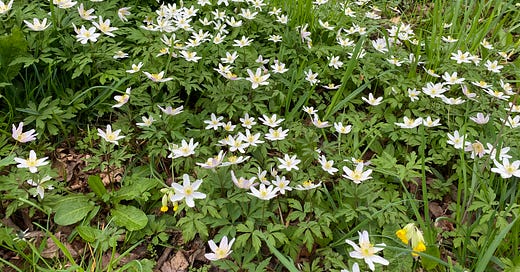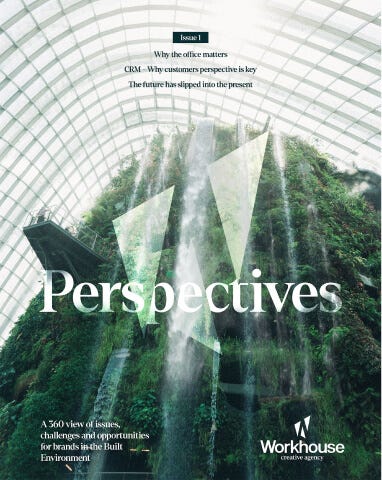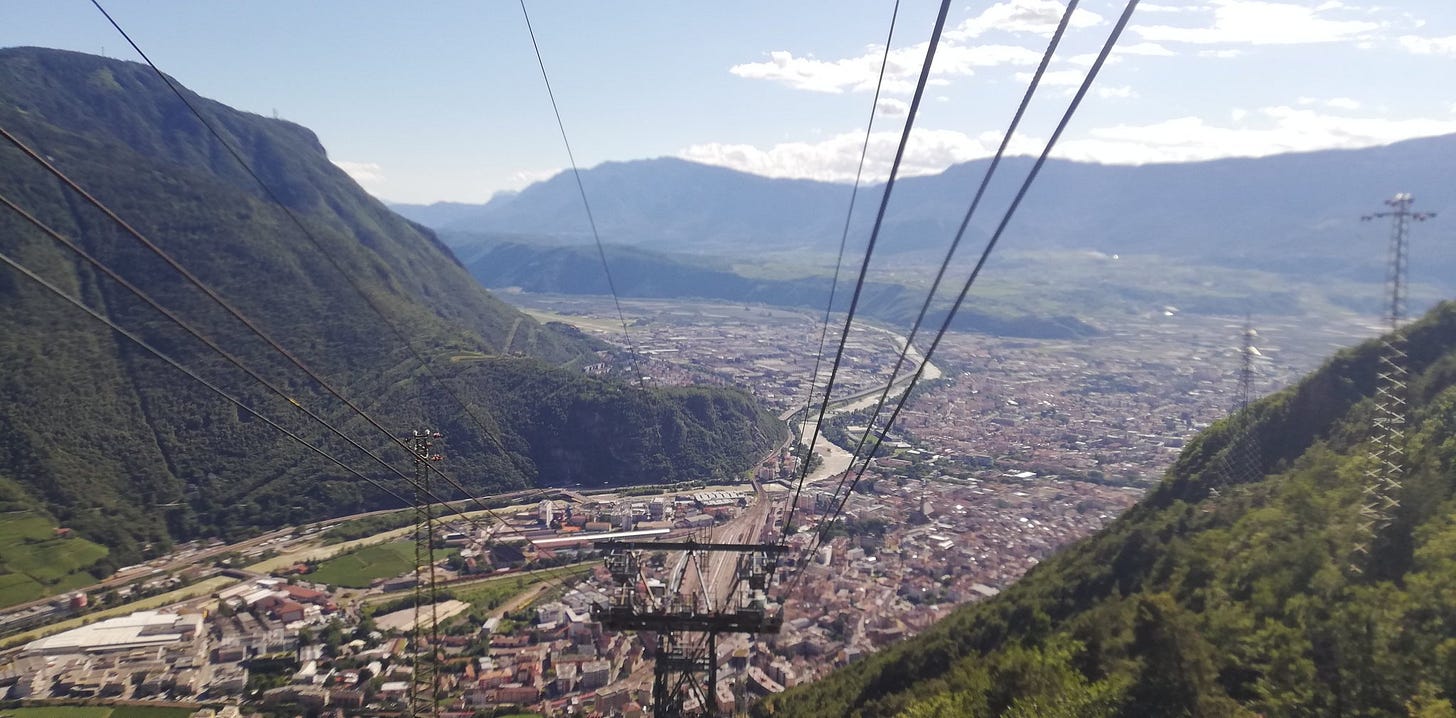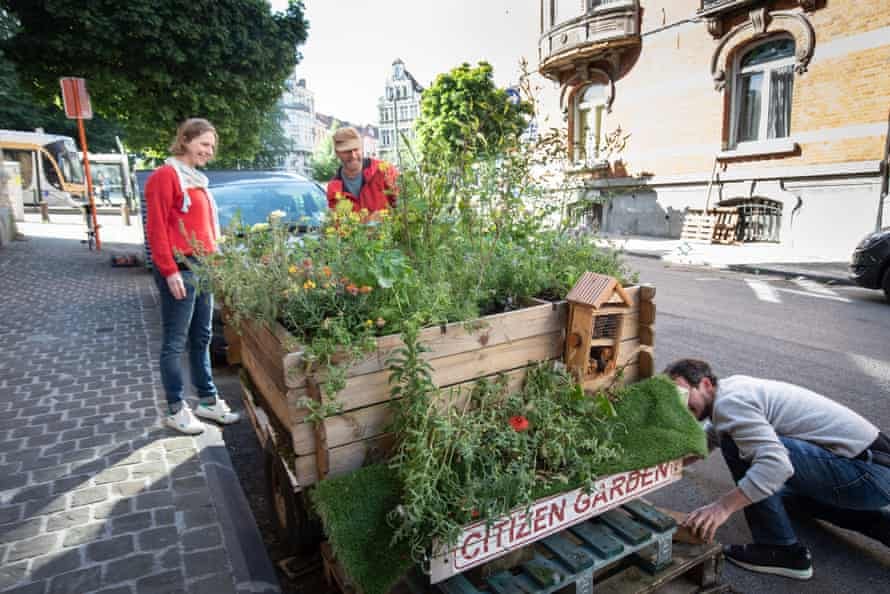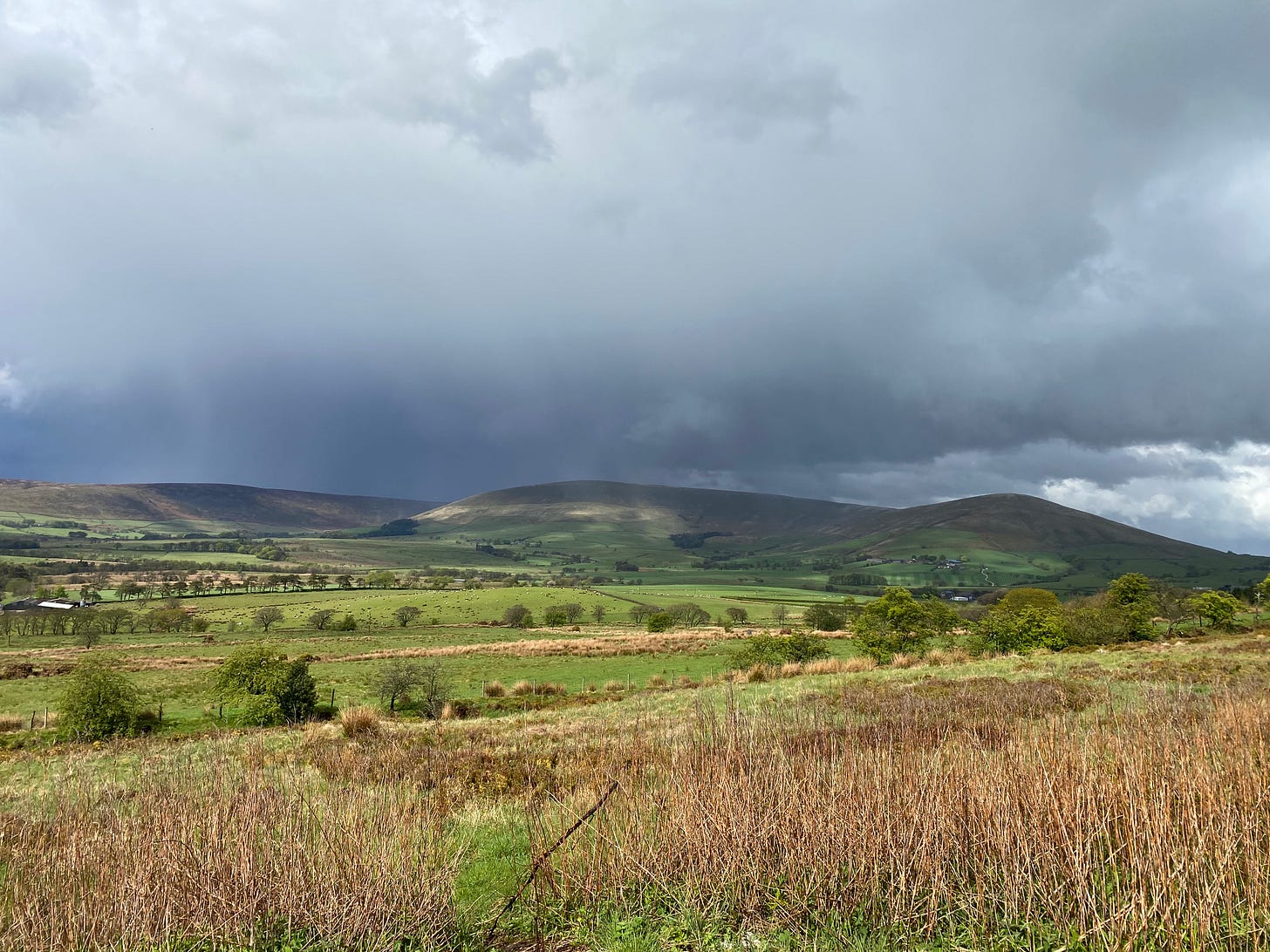Green: Washing + Potentials
Regenerative Brands, Biophilic Camp, Nature Connectedness and the S Word.
Hi, an unforeseen error in the publishing of this post resulted in it not reaching all subscribers. Please accept my apologies, enjoy this (re)posting and thank you for subscribing.
In the quest for sustainable development, the only thing more dangerous than the absence of progress is the illusion of it. (Enough EY Antithesis Report).
Welcome to Regen/ NotesRegen Notes is the newsletter of regenerative gleanings, news, stories and more, with a sideways focus on the built environment, connecting spaces between dots, sharing ideas, themes and individuals that invigorate and inspire …
This Regen Notes looks at green themes, through a regenerative lens, with news of Living Future Europe key gatherings, a call for building product brands to develop a regenerative culture, news of rewilding parking spaces, yet along with warnings of sustainability complacence, greenwashing and research that finds the UK bottom in Europe for nature connectedness and one of the most nature-depleted countries on the planet.
Is it possible our (UK) relationship with nature, or lack of, is a result of our relationship with smart phones and selfies?
Storms and Starlight (from Regen Notes October 2021)
…“Yet, if we talk about a future that is ecologically robust, culturally rich and socially just, as the Living Building Challenge does, then our relationship with nature is very much at the heart of what we do … and who we are”
Erich Fromm back in 1968, with the first use of the word biophilia, described biophilia as the love of life and all that is living – as hope, as an antidote to helplessness and disorientation - an antidote to despair - how very pertinent to our times here in (2022).
Perspectives
It was a pleasure to have contributed to the very first edition of Perspectives from Workhouse Creative Agency
Working Towards a 'new' Sustainability.
Q5. When it comes to climate change and its place in brand strategy, what’s your best advice?
Develop a regenerative culture. Heading into 2022, embracing a culture of incremental regenerative improvements, whilst not shying from transformational action, would be a wise and prudent move for brand strategy. Over the coming years, the steps we take on climate-related matters will be ever challenging, yet also providing one of the biggest opportunities we have ever had. Challenges and opportunities that will need authentic passion, creativity, disruption and real leadership. Opportunities that sound right up brand’s street. Read Perspectives
Living Future Europe. Welcome to the Regenerative Age
The Steering Committee of LFE met for a planning retreat in the Italian Dolomites last month to plan out our approach for the coming months and years.
With a strong focus on regenerative futures Living Future Europe will grow into a leading regenerative organisation, with the mission to make the world work for 100% of humanity, in the shortest possible time, through spontaneous cooperation without ecological offense or disadvantage of anyone, catalysing the transformation toward communities that are socially just, culturally rich, and ecologically restorative.”
Biophilia and Biophilic Design is gaining traction as a key regenerative topic and a core design element. Living Future Europe is proud to be hosting an immersive Biophilic camp based in the Italian Dolomites, that over 3 days will give the opportunity to understand and explore Biophilia through connecting with nature, coaching, group project work, seminars and time for group discussions and personal reflections.
(Biophilic design) is not just what we do but who we are.
Biophilia 2022 brings together professionals from all over Europe and trainers from different disciplines (biology, psychology, architecture, engineering, organization, and business strategy) in a formative exploration of the various aspects of biophilic design, to create professional figures capable of provoking a change in the built environment design, construction, and management. Biophila Camp 2022 preregistration details
Regenerative Master Class
The second Living Future Europe Regenerative + Agile Masterclass commences in October, as an online class meeting weekly until December exploring the why what and how of regenerative built environment future. The Masterclass based on individual project work and the Living Building Challenge also provides the opportunity to become LFA (Living Future Accredited) when the ILFI module option is taken. As in 2021 when the Masterclass went to COP26 in Glasgow, this years Masterclass will align with and visit COP27 in Egypt. Preregistration details
Living Future Europe Declare Roadshow
“These are absolutely difficult times for manufacturers and developers of building materials” Following Declare events in Brussels Spain our roadshow continues with planned exciting events later in the year in Denmark and the UK. Watch this space for news
In the News
More flowers, fewer cars: the rewilders turning parking spaces into parks
As more towns and cities bring in measures to curb traffic and the number of cars on the streets, the idea of converting parking spaces into “parklets” is gaining traction. These tiny green parks are part of a trend in urban rewilding by individuals that is boosting biodiversity across the world. The Guardian
Britain ranks bottom in Europe for nature connectedness
From the romantic poets to the global reach of Sir David Attenborough, Britain has a reputation for being a nation of nature lovers. But the citizens of this supposedly green and pleasant land are ranked bottom of 14 European nations measured for their “nature connectedness”, according to a new study.
Nature connectedness is a psychological concept that measures the closeness of an individual’s relationship with other species and the wild world. Studies have found that people with a high level of nature connectedness enjoy better mental health and are more likely to act in environmentally friendly ways.The Guardian
Britain is bottom of the 14 nations for biodiversity, having lost more wildlife than any other G7 country and been shown to be one of the most nature-depleted countries on the planet.
Another study has found that people who take lots of selfies experience less connection with the natural world. The latest study also supports previous research showing that new technology is more significant than urbanisation in the decline of nature words in cultural products since the 1950s.
Environment Agency chief hits out at greenwashing by businesses
‘Deception’ gives false impression firms are addressing climate crisis The Guardian
Emma Howard Boyd, chair of the Environment Agency warns businesses are embedding liability and storing up risk for their investors by giving the false impression they are addressing the climate crisis.
Don't use that word until …
Language is important, particularly in the age of climate crisis, we need clarity, to inspire and enthuse with our words, not to create confusion and a mask for greenwashing. One of our most over used words, one that is open to a myriad of interpretations is ‘sustainability’. Way back, Yvon Chouinard commented “we should not use the word sustainability until we give back as much as we take” and still remains a sound approach to using the S Word.
The report Words that work: Effective language in sustainability communications, suggests that on average, the word “sustainability” is repeated 10 times on each sustainability webpage of Forbes’ top 50 brands, while the most sustainable brands only used it once. Basically, if you feel the need to use that word often, maybe you shouldn’t be using it at all.(World Economic Forum)
Delve into, read and subscribe to over 50 earlier Regen/Notes here

